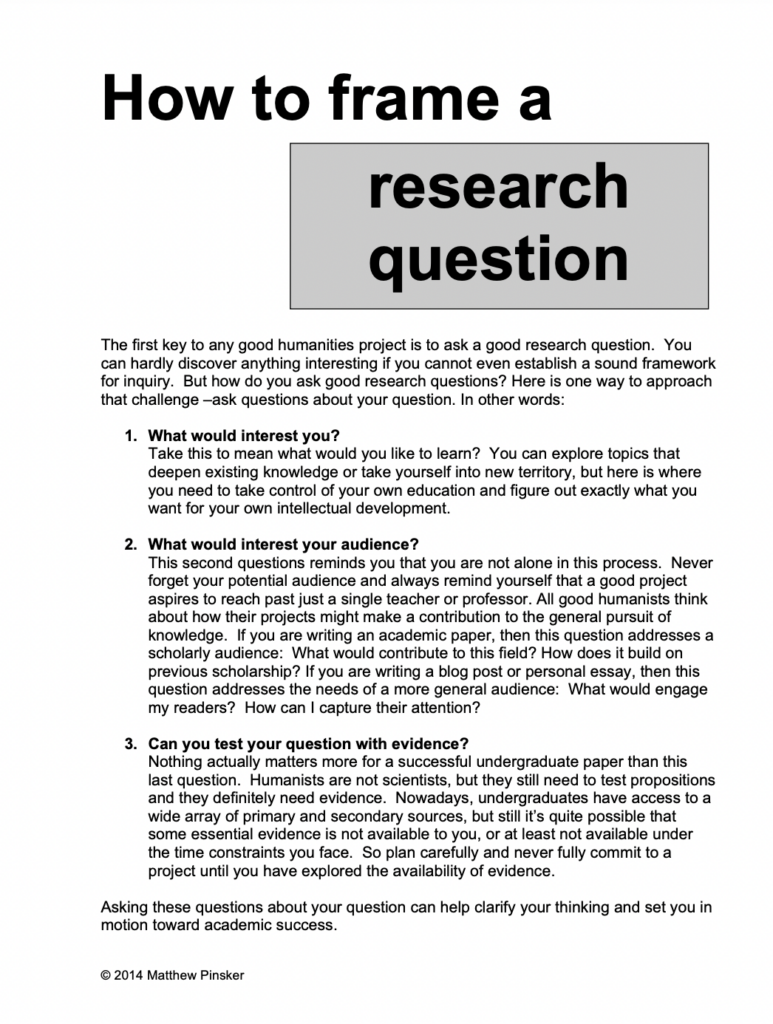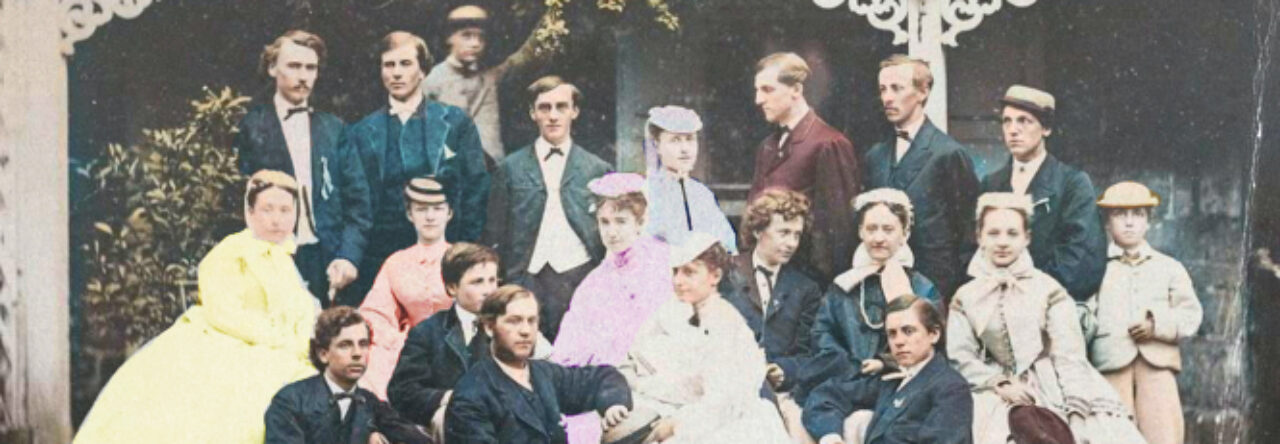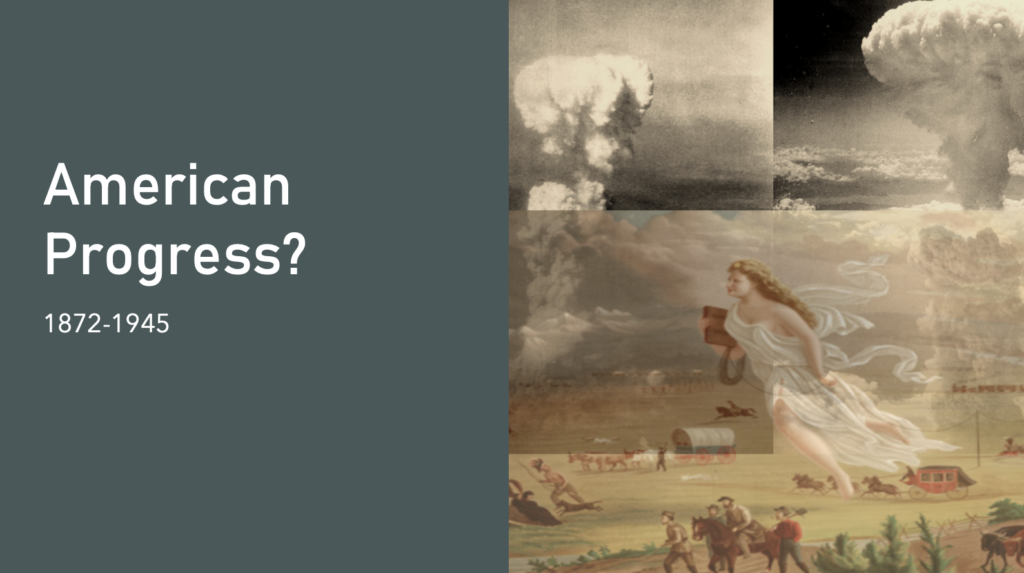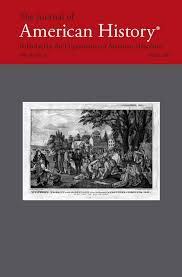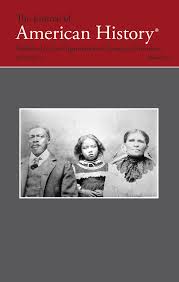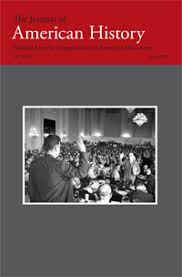“Everything has a history.” —James Grossman, AHA Perspectives, 2015
Essential Question
What is the right way to frame a good historical question?
Discussion Questions
- What did historian Kenneth Jackson mean when he told his students (like Zachary Schrag), “You can find an example of anything.”
- Why does Schrag prefer to think about historical interpretations in terms of dialectics?
“The more puzzling the riddle, the greater the value in its solution. To demonstrate such value, historians often frame their theses as dialectics. Dialectic is a Greek term, literally meaning ‘conversation.’ In philosophy, the term describes the process by which thinkers seek the truth by exchanging opposing arguments. Historians use such comparisons of opposites to craft arguments about the past. Indeed, dialectics distinguish mere recitation of facts from interpretive claims about the past. A dialectic is more than a simple assertion that two ideas, events, or statements were different: the word different and its synonyms –diverse, varied, and so on– is too vague. Instead, historians present several distinct types of dialectics to explain debates and the struggles of the past.” –Schrag, p. 57
- Schrag’s list: Opposing forces, internal contradictions, competing priorities, determining factors, hidden meanings, BEFORE AND AFTER
Also…
- Socratic Method (Platonic dialogues)
- Hegelian dialectic (thesis-antithesis-synthesis)
- Marxist class struggle (dialectical materialism)
Framing Questions About the Atomic Bomb
A more recent example of this sort of comparison is the ongoing debate over the decision to use the atomic bomb against Japan. How much were President Truman and other policy makers influenced by the desire to hasten the end of fighting with Japan, compared to their hopes of limiting postwar Soviet power, or their assumption that any weapon, once developed, should be used? Without denying that Truman could have –and likely did– act in response to multiple concerns, scholars weight these factor in various ways, producing a lively debate. –Schrag on “Determining Factors” and Dialectics, Chapter 3
Hollywood and the Manhattan Project
Behind-the-scenes with Christopher Nolan’s “Oppenheimer” movie (2023), based on the 2005 Pulitzer Prize-winning biography of physicist and Manhattan Project director J. Robert Oppenheimer by Kai Bird and Martin Sherwin
Enola Gay
Col. Paul Tibbets was the pilot in command of the Enola Gay (a B-29 bomber named for his mother) that dropped the atomic bomb on Hiroshima, Japan on August 6, 1945. The city had a population of about 350,000 at that time. The explosion immediately killed about 70,000 of those residents, destroying most of the city’s buildings. Tens of thousands more died in the weeks afterward. Tibbets was interviewed on camera, not long after he returned (August 19th).
Homefront
Russell Baker was a young 19-year-old naval pilot originally from Virginia who was training to go overseas in the summer of 1945. He later became a Pulitzer Prize-winning columnist for the New York Times who recalled his coming of age during the Great Depression and World War II in a famous memoir, Growing Up (1982).
“On August 9 the second atomic bomb was dropped at Nagasaki. Next night I wrote to my mother. “Well, today, to all intents and purposes, the war ended. The feeling of extreme elation which I had expected, existed for a bare moment, then life subsided back into its groove and it was just another day….” I didn’t confess that I hated the war’s ending. I knew she had been praying to God to save my skin; I could hardly tell her I was sorry her prayers had been answered… Still there was no hint in either my mother’s correspondence or mine that the arrival of the nuclear age interested us much. My mother, also excited about premature news that the war was over, had less cosmic things on her mind. The night after the Nagasaki bombing she wrote: “I’m still hoping that you’ll go to college when the war is over and study journalism; that is, if you’re still interested in that kind of work. Don’t lose hope and get married at this stage of the game.” (Russell Baker, Growing Up, p. 230)
Revisionists and the White House
John Lewis Gaddis of Yale University is one of the nation’s leading historians of the Cold War era. In this excerpt, he challenges the widely-held view that President Harry S Truman never hesitated and never questioned his decision to authorize the dropping of two atomic bombs on the Japanese in 1945.
“It took leadership to make this [containment of atomic war] happen, and the most important first steps came from the only individual so far ever to have ordered that nuclear weapons be used to kill people. Harry S Truman claimed, for the rest of his life, to have lost no sleep over his decision, but his behavior suggests otherwise. On the day the bomb was first tested in the New Mexico desert he wrote a note to himself speculating that ‘machines are ahead of morals by some centuries, and when morals catch up perhaps there’ll be no reason for any of it.’ A year later he placed his concerns in a broader context: ‘[T]he human animal and his emotions change not much from age to age. He must change now or he faces absolute and complete destruction and maybe the insect age or an atmosphereless planet will succeed him.’ ‘It is a terrible thing,’ he told a group of advisors in 1948, ‘to order the use of something that …is so terribly destructive, destructive beyond anything we have ever had …. So we have got to treat this differently from rifles and cannon and ordinary things like that.’” (John Lewis Gaddis, The Cold War, p. 53)
Classroom and the Atomic Age
TEST CASE: THE BOOK REVIEW ASSIGNMENT
Describe book reviews from an academic historical journal provided by Prof. Pinsker
What questions can you ask about these sources (book reviews) that would interest you, future students like you, and that you can test successfully in about a week?
Advice for Framing Questions 